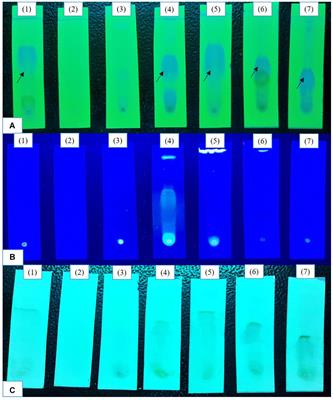MINI REVIEW
Published on 13 Apr 2022
Epigenetic Modification: A Key Tool for Secondary Metabolite Production in Microorganisms

doi 10.3389/fmicb.2022.784109
- 5,147 views
- 14 citations
5,778
Total downloads
23k
Total views and downloads
Select the journal/section where you want your idea to be submitted:
MINI REVIEW
Published on 13 Apr 2022

EDITORIAL
Published on 05 Apr 2022

ORIGINAL RESEARCH
Published on 24 Mar 2022

REVIEW
Published on 14 Feb 2022

ORIGINAL RESEARCH
Published on 02 Dec 2021

ORIGINAL RESEARCH
Published on 17 Sep 2021

